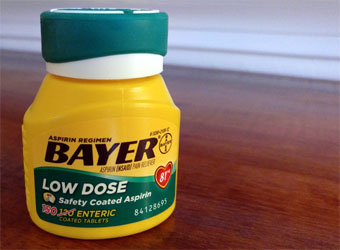
Photo by Thursday Review
Bayer Buyout of Monsanto Gives
Investors Headaches
| published June 6, 2016 |
By Keith H. Roberts, Thursday Review contributor
Bayer AG has offered so much money in its bid to buy Monsanto that investors on all sides of the matter are deeply concerned, after all Bayer’s proposal of more than $62 billion (yes, that’s billion with a B), or $122 per share, makes it one of the biggest merger proposals in history.
Not that size matters anymore in the increasingly popular venue of the mega-merger; monster buyouts and mergers are common these days. But in this case the worry is the massive debt which both companies will likely carry for years to come.
After Bayer’s announcement two weeks ago the price of both stocks fell as Wall Street and other markets recoiled from a deal which appeared to look dangerous to both companies, but especially to Bayer AG, the 150-year-old German conglomerate which makes products ranging from pharmaceutical products to pesticides to plastics, from surgical equipment to seed processing and agriculture to weather coatings. Bayer, which owns common products like Bayer aspirin (its original product dating to 1863), Yasmin/Yaz birth control pills and RoundUp weed killer, is expected to absorb a mountain of debt in its acquisition of Monsanto.
Bayer wants Monsanto for the latter’s powerful inroads into agriculture and farming, a rapidly-growing business sector—increasingly high-tech and innovation-driven—which Bayer believes has potential for profits for decades to come. If the merger is approved by U.S. and European regulators, the deal would make Bayer the biggest agribusiness conglomerate in the world.
But it will also leave Bayer with staggering debt. Bayer’s top brass, over the objections of many Bayer stockholders large and small, has already admitted that the buyout will leave the company, founded in 1863 as the world’s first mass-market distributor of aspirin, swimming not only in pills and vials, but also in red ink.
But after weeks of concerns in the business press and a storm of objections by European regulators and business analysts, not to mention the loud dissent of its own investors, Bayer said it will step outside of its comfort zone and seek assistance from a consortium of additional investors—a list of financial patrons which may include Goldman-Sachs and JP Morgan Chase, adding two mega American banks to Bayer’s previous backers, Credit Suisse and Bank of America. Also participating in the deal is HSBC Holdings, according to the website AGProfessional, a news site which follows closely the activities of major agriculture companies worldwide.
Monsanto originally turned down Bayer’s mid-May offer, expressing concerns over the language and the staggering price tag, but has since agreed to open a series of discussions to work out the numerous problems associated with both the complexity and size of the potential debt. Monsanto, according to some in the business press, may yet reject the offer if the talks to do not produce assurances for Monsanto investors—and those who own Bayer—that the merger will not result in an endless pipeline of IOUs.
Neither Bayer nor Monsanto would elaborate on the talks, nor would either company even confirm that additional banks had been brought in to help shore up the massive deal.
Both companies have footprints in numerous countries, though Bayer’s international outreach is far more complex than the U.S.-based Monsanto. Bayer owns operations in scores of countries, including India, Germany, the Netherlands, Denmark, and Brazil. Bayer employs about 120,000 people worldwide.
Related Thursday Review articles:
Alaska Air Will Buy Virgin America; Thursday Review staff; Thursday Review; April 4, 2016.
DuPont Dow Merger May Produce Three Companies; Keith H. Roberts; Thursday Review; December 11, 2015.
